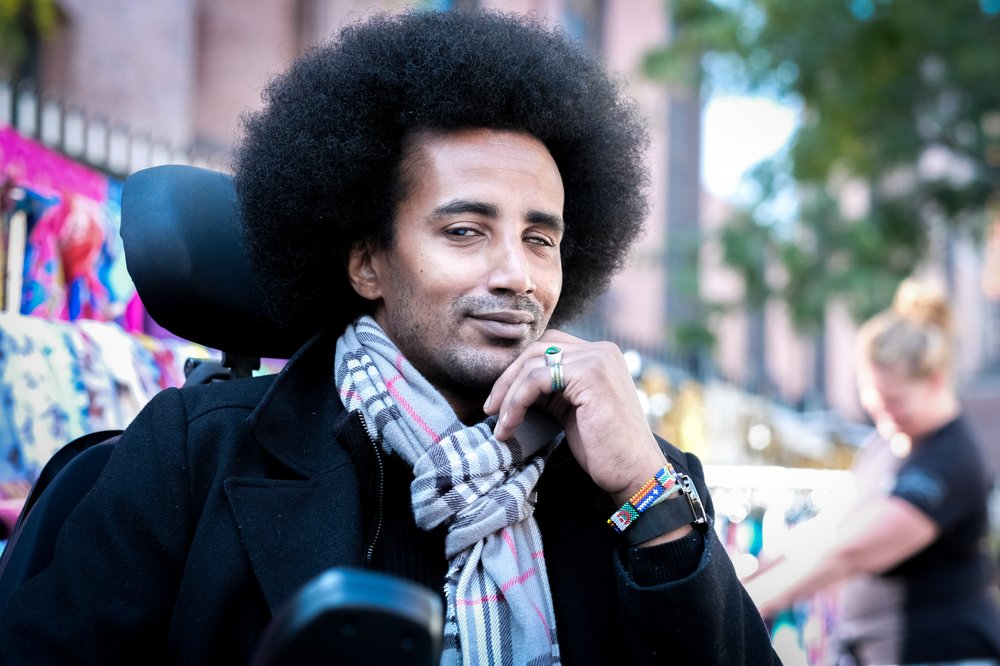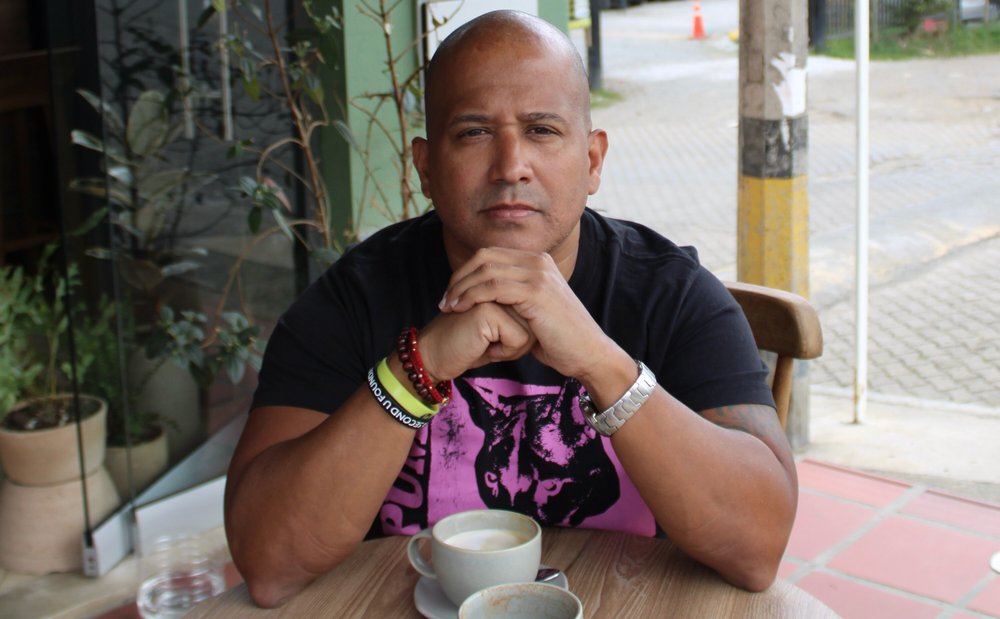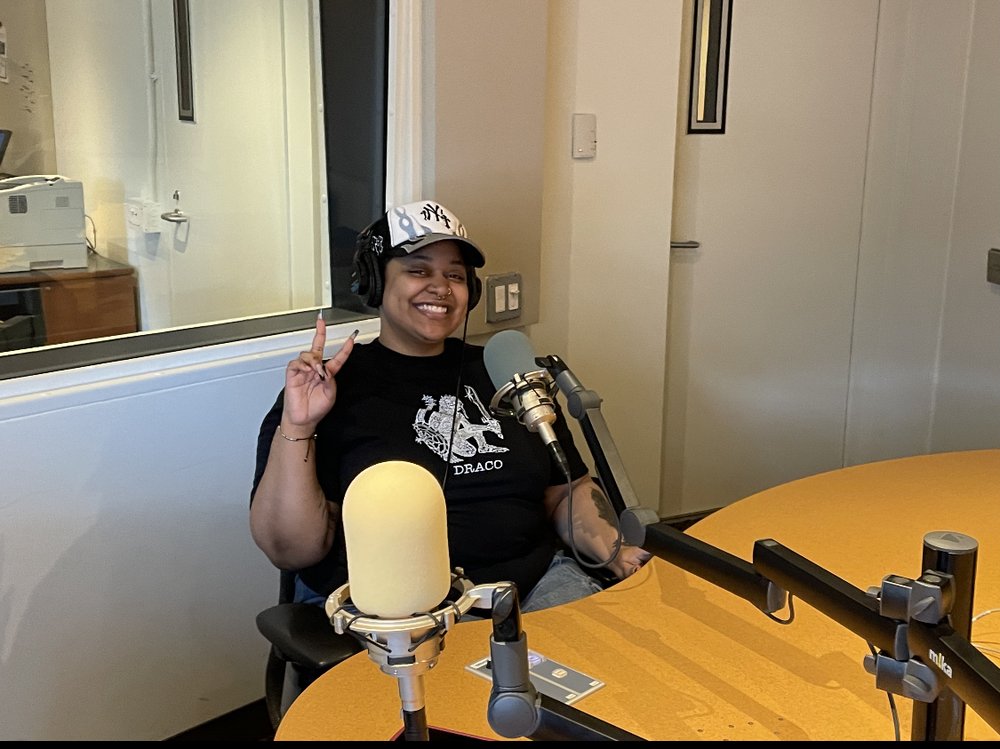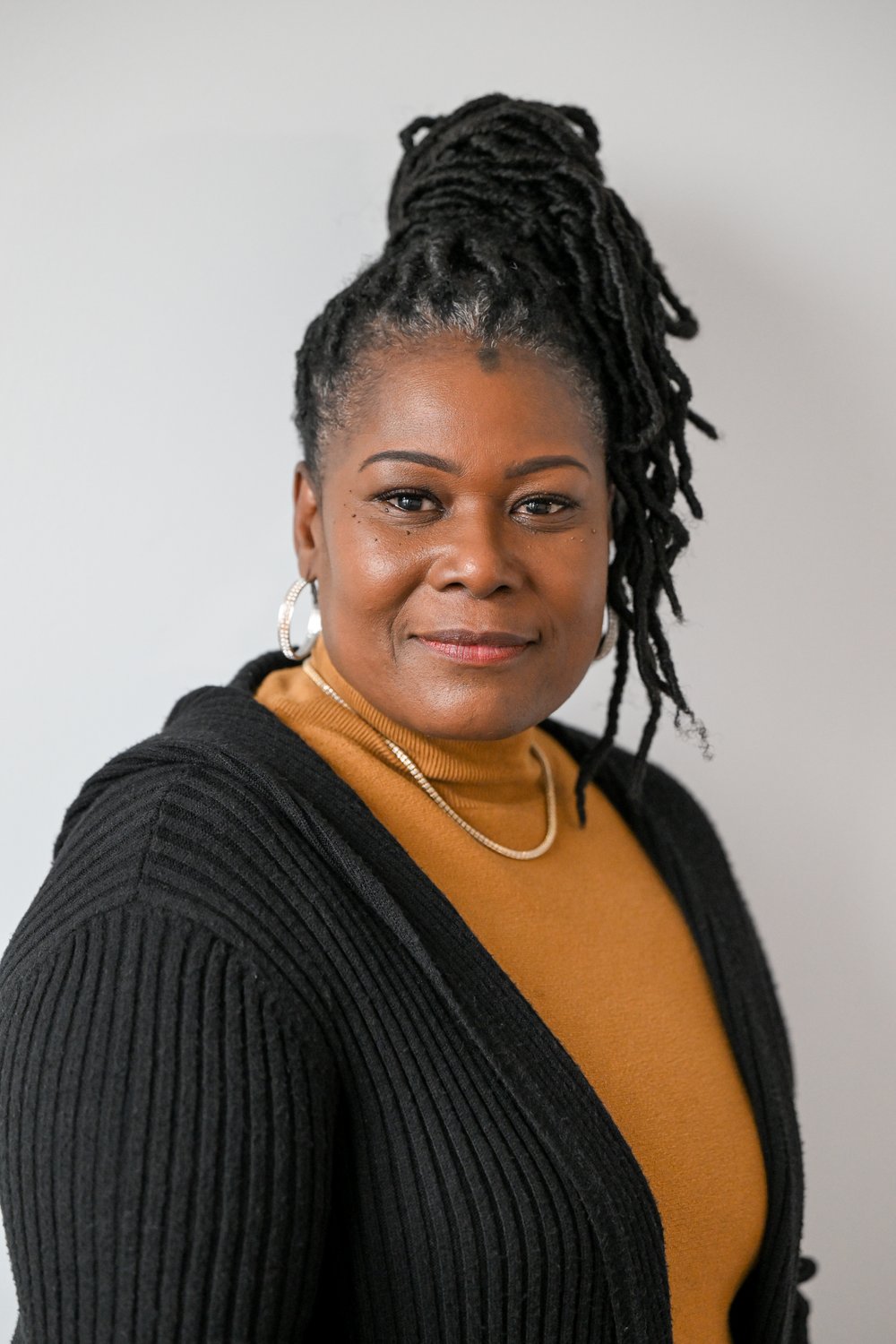These 5 New Yorkers radically transformed their lives. Here’s how they did it.
Jan. 26, 2024, 7:01 a.m.
From losing the ability to walk, to struggling with mental health, these New Yorkers have experienced loss – and they’ve also learned how to start over.

As we move further into 2024, we talked to five New Yorkers who’ve faced extraordinary challenges and examined how they started over.
From losing the ability to walk, to struggling with mental health, these New Yorkers have experienced loss – and they’ve also learned how to start over.
Some were helped by therapy or peer mentorship; others found strength in faith, fitness, or writing. The specifics of how they transformed their lives vary – but a unifying theme among them is that everyone was shaped by their communities.
Here are their stories.

“I had to try to figure out why I kept doing these things.”
When Saul Serrano, 51, graduated from high school in New York City in 1990, he joined the Marine Corps.
He hoped to escape the dangers he’d witnessed growing up in Midtown, where he’d been surrounded by drug dealing, gun violence and substance abuse.
But instead of finding solace, he said he experienced racism and bullying during his four years in the Marine Corps, and received a bad conduct discharge after leaving without approval.
“That was very difficult,” he said on a recent morning in Lower Manhattan. “I lost a lot of my honor and a lot of respect there.”
After his expulsion from the military, Serrano worked hard to rebuild his life, and got a job in security, before working at FedEx for 10 years.
“I had everything,” he said. “I had a house. I had a wife. I had kids, cars. I had a good income.”
But within four years, Serrano got involved in a wire fraud scheme that led to the unraveling of his life as he knew it. He wound up spending time in prison with several years of probation.
“It was kind of a pattern,” he said. “I had to try to figure out why I kept doing these things.”
During his time in prison, he participated in therapy and a drug treatment program, and credits both with helping him understand the influences that were driving him – such as a desire to fit in and to be accepted.
After his release from prison in 2019, Serrano stayed in a halfway house in Brooklyn. There, he was introduced to A Second U Foundation, which helps formerly incarcerated people build careers in the fitness industry.
“I didn't have to be this person to be accepted there,” he said. “I could just be me.”
Through the foundation’s 10-week program, Serrano learned how to become a personal trainer. He said completing the course gave him structure and focus to stay on his new path.
Now he has his own company, Supa Physique Personal Training, working with clients mostly online. He continues his work with Second U Foundation as a mentor for other formerly incarcerated men and women.
“I keep one person from not going back to prison and I've helped them,” he said. “That's all I really, really want to do now in my life.”

“I have so much stuff I want to do.”
Minbiyew Ashagre, 37, goes by the nickname “Grey." He spent his youth in Addis Ababa, Ethiopia.
As a child, he was kidnapped from his parents
“I was forced to beg on the streets for money,” he said. “I was stabbed in the left eye. I had an infection in my eye that was going to kill me if I didn't get it treated.”
After he was placed in an orphanage, two American doctors who heard about this condition brought Grey to the United States for medical care.
They formally adopted Grey after his treatment, raising him in Florida and upstate New York before settling in New York City.
“I've heard a lot of horror stories of kids getting adopted and it ends up going bad, but I've really truly been blessed,” he said. “I got the most wonderful parents that anybody could have got.”
Grey became involved in his school’s sports teams and was an avid track athlete.
But during his senior year of high school, he was shot on Valentine’s Day and rushed to the hospital to fight for his life. Grey survived, but the bullet left him paralyzed from the chest down.
He learned that he’d have to spend the rest of his life in a wheelchair.
The loss of life as he had known it left him feeling isolated and emotionally overwhelmed for months.
What helped, he said, was connecting with a quadriplegic person in the hospital who helped him realize that he could approach his life differently.
“That's when I took everything serious, started doing my workouts, trainings,” said Grey.
After about a year, Grey was able to leave the hospital. He finished high school and continued to work on his recovery. In his determination to try new things, Grey went skydiving and hang gliding. He also took on speaking engagements at different high schools around New York City.
Soon after, Grey found Project Renewal, a nonprofit organization that helps provide health care, homes, and jobs to New Yorkers in need of assistance.
Today he works as a case manager, and credits Project Renewal for giving him a second chance at life after all he has faced.
“I'm happy where I'm at,” he said. “I want to excel, move forward. I want to be the best I can be.”

“I looked into Islam and that really was just like a life changer for me.”
Marowa, 24, works as a teacher at a charter school in the Bronx. She said she has no legal last name.
She was born in Bangladesh and relocated to the U.S. in 2008 with her family.
"We grew up really, really poor and the language was a huge barrier for us,” she said.
Marowa said she faced many challenges in her childhood, including bullying at school, and abuse at home.
After obtaining a restraining order against her father at age 16, Marowa ran away to escape him.
She moved from a shelter, to the foster care system, and experienced homelessness twice.
Marowa was able to finish high school despite these harsh realities. In college, she was connected to New Yorkers For Children and its Nicholas Scoppetta Scholarhip Program, which gave her the financial, academic and emotional support she needed to graduate from Brooklyn College.
“Being able to graduate, it's really just, like, a dream, almost, surreal for me,” she said.
Marowa also found resilience through rediscovering her faith.
“I looked into Islam and that really was just like a life changer for me,” she said.
Marowa began attending mosque regularly every Friday, praying, attending Quran classes and getting involved in charity work independently.
Today she works as a teacher at Dream Charter School, where she also founded a Muslim student association.
“To be able to lead, you know, a large group of students, who may be in the same situation that I was in, you know, and just to see my reflection upon them. I learn a lot from them just as much as they do.”

“I just want to be creative, experience life and be the best version of myself.”
By the time Chantel Jackson was 14, both her parents were incarcerated.
“Having to accept that you're just gonna live with strangers for the rest of your life until you're 21,” said Jackson, 24. “That’s not something really easy to accept at 14 years old.”
Although this separation from her parents was traumatic, Jackson said it also pushed her to be her own best advocate after having to navigate the foster care system by herself.
When Jackson was 18, she entered a writing competition from an organization called Youth Communications, which publishes personal stories written by children in foster care through its own magazine.
She won the grand prize and received $1,000, which she put toward paying for her college dorm. She planned to focus on becoming a psychologist, but refocused on her writing after she was dismissed.
Jackson's mother sent her a copy of Sister Souljah’s book, "A Deeper Love Inside," which she said “changed the course of her life.”
From there she began viewing writing as something she could pursue professionally. She began visiting the library frequently, where she read more books, journaled, wrote poetry, worked on her own book and attended a writing workshop.
Today she views writing as her source of power that gives her space to express her pain.
“It became my number one passion,” she said. “It became a listening ear for me, when I felt like I wasn't being heard throughout my hardships and experiences. And it helped mold me into who I am today.”
Chantel also rebuilt her relationships with her parents on her own terms. She reconnected with her father at 18 and now sees him as her “best friend.” She also developed a supportive connection with her mother.
Now Chantel has released an e-book, called “21 Questions for the Inner Self,” and also works with teens affected by parental incarceration as a youth fellow with See Us Support Us at the Osborne Association, which serves individuals, families, and communities affected by the criminal legal system.
She hopes to help young people grappling with the issues she faced as a child.

“I'm not my diagnosis, but a person first”
When Jovanna Marc was 15 years old and living in Brooklyn, her son passed.
“That's when I was first diagnosed,” said Marc, 55. For years afterward, she dealt with diagnoses of severe depression, paranoid schizophrenia and post-traumatic stress disorder.
Her struggles with mental health programs led to legal troubles, and several stays in jail.
After the loss of her second son in 2015, she found it harder to function.
“I didn't know how to deal with realities of life after losing my boys,” she said.
And she didn’t know how to seek help because therapy seemed too painful.
“I didn't trust anyone and I didn't want to keep reliving my trauma by talking about it,” she said.
It wasn't until 2018 when she was introduced to the Howie the Harp Advocacy Center, a peer workforce training program run by the mental health nonprofit organization Community Access, that Jovanna began to trust.
The organization expands opportunities for people living with mental health concerns to recover from trauma and discrimination through affordable housing, training, advocacy, and healing-focused services.
Marc said she found hope and self-confidence as she learned to help others struggling with mental health through a five-month program provided by the center.
“I truly believe in my heart that peer specialists are agents of change,” she said. “We don't tell people what to do, we show them.”
Through that program, Marc saw a future where she was “not my diagnosis, but a person first.”
Today, Marc heads Multi-Assistance Resource Center, her peer-run organization in Central Harlem that facilitates delivery of social and public health services, like assistance in getting meals or groceries, delivery of medical and mental health services, transportation to doctors’ appointments, and one-time financial payments for living expenses like rent and utilities.
Marc is also pursuing her Ph.D with a focus in leadership in organizational change.
“I've been in a position where I've been given resources so now I can share it with others,” she said. “To make their life that much easier so they don't have to be stressed out.”
8 tips to help New Yorkers deal with stress in 2024 A bookstore on the Lower East Side has divided a community Where to get great Colombian food in Jackson Heights, Queens